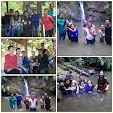Discourse Analysis and Narrative
Narrative has been one of the major themes in humanistic and social scientific thought since the mid-twentieth century. The essence of humanness, long characterized as the tendency to make sense of the world through rationality, has come increasingly to be described as the tendency to tell stories, to make sense of the world through narrative. In linguistics, narrative was one of the first discourse genres to be analyzed, and it has continued to be among the most intensively studied of the things people do with talk.
I begin with a brief description of structuralist narratology, the most immediate context for discourse analysts’ work on narrative. I then turn to some of the earliest and most influential American work on narrative in linguistics, that of Labov and Waletzky (1967; Labov 1972: 354–96). Subsequent sections cover other important work on the linguistic structure of narrative and on its cognitive, cultural, social, and psychological functions, on the development of narrative skills and styles in children, and on variation in narrative. I then touch on some work on narrative in other disciplines which bears on and often draws on linguistic discourse analysts’ work: work on “narrative knowing” and narrative rhetoric, on history as story, on the “narrative study of lives” as a research method in education, psychology, and sociology, and on poststructuralist literary narratology. The final section discusses the current state of narrative study in discourse analysis and sketches some directions in which new work is going.
I begin with a brief description of structuralist narratology, the most immediate context for discourse analysts’ work on narrative. I then turn to some of the earliest and most influential American work on narrative in linguistics, that of Labov and Waletzky (1967; Labov 1972: 354–96). Subsequent sections cover other important work on the linguistic structure of narrative and on its cognitive, cultural, social, and psychological functions, on the development of narrative skills and styles in children, and on variation in narrative. I then touch on some work on narrative in other disciplines which bears on and often draws on linguistic discourse analysts’ work: work on “narrative knowing” and narrative rhetoric, on history as story, on the “narrative study of lives” as a research method in education, psychology, and sociology, and on poststructuralist literary narratology. The final section discusses the current state of narrative study in discourse analysis and sketches some directions in which new work is going.
Two related but somewhat different approaches to the structure of narrative became known in the West beginning in the mid-1950s. One was that of the Russian Vladimir Propp, whose Morphology of the Folktale (1968) was published in Russian in 1928 but first translated into English in 1958. Although Propp borrowed the term “morphology."
Propp’s work might more accurately be called the syntax of the folktale, since its fundamental claim is that all folktales have the same syntagmatic deep structure, the same sequence of “functions” or meaningful actions by characters. Once characters and their initial situation are introduced. While Propp’s approach to characterizing the universal features of folklore is like that of formal syntax, Claude Lévi-Strauss’s (1955, 1964, 1966) is more similar to formal semantics. Lévi-Strauss’s interest was in describing the abstract elements of meaning that are expressed in myth, semantic contrasts such as male/female and raw/cooked. His claim is that traditional narrative around the world, though superficially varied, all deals with a limited number of basic themes. A number of French philosophers and literary theorists, writing in the late 1960s, adapted Propp’s and Lévi-Strauss’s ideas or similar ones to the analysis of literary narrative. The best known of these is probably Roland Barthes, whose “Introduction to the Structural Analysis of Narratives” was published (in French) in 1966. Others are A. J. Greimas (1966), Tzvetan Todorov (1967), and Gérard Genette (1966). (See Culler 1975: ch. 9 for an overview of structuralist theory about literary narrative.)
These structuralist approaches to myth and literature were not all the same, but they all shared two assumptions. One was that there are abstract levels on which structures and meanings that seem different superficially are really the same. The other was that narrative can be separated from the events it is about. This assumption is discussed most explicitly in the work of French linguist Émile Benveniste (1966), who distinguished between histoire and discours, or “story the events – and “discourse”– the presentation of the events in a narrative. Both these ideas were current in the American linguistics and literary theory of the 1960s (the former most obviously in Transformational/Generative Grammar), and, as Hopper (1997) points out, both were taken into the first American work on narrative discourse.








0 komentar:
Posting Komentar